Staff Reflections
Growing with Gratitude
A word of reflection by Executive Director of World Relief Triad, Rob Cassell.
As we begin 2022, two main themes have been constant for the past few months going into the new year. They are gratitude and growth.
Gratitude
Both World Relief and our clients have felt incredibly loved by our community. As we welcomed Afghan families with a much-reduced timeline to prepare for their arrival, the community sprang into action. They arrived amid challenges regarding document, support delays, and housing difficulties. Good Neighbor Teams were quickly formed to welcome them and provide support, even as Congress lagged in this area. They helped ensured that these families would have their best chance to re-establish themselves here in the Triad. Others gave large one-time gifts solely dedicated to this population. Church members all the way from Boone, NC, began to contact us to see in what ways they could help become a community of welcome.
As we face the reestablishment of Winston-Salem as an official resettlement site and a ten-fold increase in arrivals, our community has already formed 10 Good Neighbor Teams to welcome them, along with several other groups forming Home Setup Teams to make sure that our newest neighbor’s homes are furnished and decorated to welcome our families.
We have also seen the business community of the Triad partner with us at unprecedented levels – both reaching out to partner with us in employing our clients and becoming what is known as a “Business of Welcome.” Businesses of Welcome partner with World Relief financially to create a community where all can thrive.
Growth
The theme of this year could easily be described as having a lot of growth as well: both growth in size and growth in service. We have many positions open to accommodate the increased number of clients we are seeing, with a lot of time and energy into training and empowering new staff to serve our community. Because of this growth, we are excited about providing more profound and more holistic service to our clients.
Some highlights to look forward to this year:
- The expansion of our Youth Mentoring program to Winston-Salem.
- A greater development of our Community Garden to include more agricultural and nutritional educational opportunities
- An increased focus and development of the Guilford Minor Trafficking Response Team – bringing together multiple community partners to combat the trafficking of minors as well as the new staff and capacity to serve the immigration legal services needs of the area.
We are excited by this growth and appreciate your partnership as we make the Triad a welcoming community together.
Grace and peace,
Rob Cassell
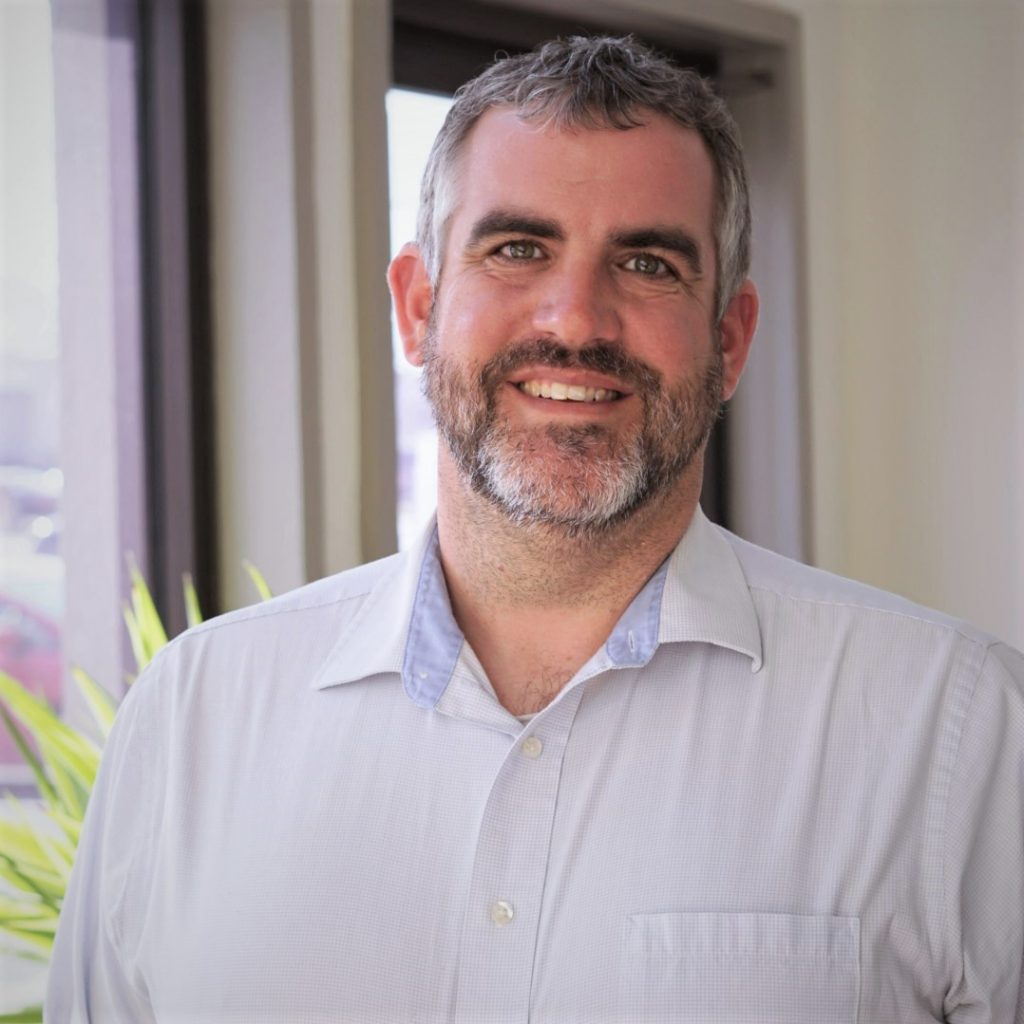
7 Ways to Love Your Neighbor
In Rwanda we have a saying — “Ifuni ibagara ubucuti ni akarenge.” This literally means, “a hoe that cultivates friendship is a foot.” In other words, we love our neighbor by visiting them and helping if they need anything.
No matter where you live, loving your neighbor is an integral part of our call as Christians. Having served alongside local churches in Memphis and Rwanda, we have seen first-hand how loving your neighbor comes in all shapes and sizes.
In some places, loving your neighbor might mean sharing baked goods. In another, it may mean dropping by unannounced for an afternoon tea. And still, for others it could mean fetching water or making bricks for a neighbor who is building a house. Yet, no matter where you live, one thing remains the same: We love because God first loved us. That’s why today, we’re sharing 7 Ways to Love Your Neighbor.
1. Take the Initiative and Value Small Acts of Kindness
Helping one another without being asked to do so is part of the culture in Rwanda. And doing something for your neighbor does not always require much. If your neighbor is sick, you could visit them, deliver groceries to them or take them to the doctor when necessary.
In rural Africa, if a neighbor is building a house, you could lend a hand by fetching water for them, making bricks or finding wood. In short, loving your neighbor is in action more than words.
2. Spend time
Quality time is said to be one of the five major ways people experience love. That’s true no matter who you are or where you’re from. When refugee families first arrive in the U.S., many often feel isolated with no family, no community and no means of transportation. Even if there is a language barrier, the simple act of spending time with our neighbors can make a world of difference. Whether you pop in for a tea or a walk, just knowing that someone cares and that they are not alone allows refugee families to feel the love of Christ through our actions.
3. Share a meal
Sharing a meal is perhaps one of the best ways to show our love for our neighbors. Whether it’s at your home or theirs, breaking bread together meets not only a physical need but also the mental and spiritual need for relationship.
No matter where you live, meals are an opportunity to connect, sharing our own culture while experiencing someone else’s. Especially for many refugees rebuilding their lives in the U.S., sharing a meal also demonstrates respect and interest in their life and culture, something that may often be overlooked in their new home.
4. Foster Reconciliation
Loving your neighbor can encompass more than lending a hand. It’s also reconciling relationships. In some Rwandan communities, church members often disregarded people from other denominations, sometimes to the point of viewing them as non-believers and refusing to work together.
After being trained by World Relief, church leaders, volunteers and program participants are reaching across denominational lines to adopt a culture of loving their neighbor by acting together. They’ve realized that together, as a unified body, they can accomplish much more, and they’re seeing ripple effects of love, joy, peace and harmony across whole communities.
Ask yourself — is there someone I can love by moving toward reconciliation and forgiveness? Is there someone I disagree with politically or denominationally that I can build a connection and a friendship with?
5. Listen
Paying close attention and listening to what your neighbors are saying is so important. We may have had very different upbringings and viewpoints, but we are all made in the image of God, and each of us has a story to tell. By listening to that story, we’ll learn new ways in which we can be intentional with our neighbors, showing them that they are welcomed and loved.
6. Advocate
While loving our neighbors on an interpersonal level is who we are called by Christ to be, sometimes systemic injustice is at the root of a problem, and loving our neighbor means advocating with them as well.
Advocacy is speaking up with those who are vulnerable to address the underlying causes of injustice by influencing the policies and practices of people in power. By starting with the reality of “what is,” we can leverage our voices to make systemic changes that lead to a vision of “what should be.”
7. Go Together
At World Relief, we believe we can accomplish so much more when we go together. In the U.S., our church partners form Good Neighbor Teams who work together to welcome and serve their new immigrant neighbors by taking them to appointments, picking up groceries or fostering friendships over lunch or dinner.
In places like Rwanda and Haiti, Outreach Group volunteers pair up to visit the homes of struggling families. Outreach Groups give local churches the opportunity to intentionally engage the community in a consistent way at a wide scale. Ordinary church members are equipped to do what Jesus taught and did — reaching out to their neighbors to share messages that lead to holistic development and facilitate relationships.
If you’re considering reaching out to a neighbor or participating in a service project, why not ask someone to join you, so this movement of love can grow further?
Living justly and loving our neighbor is better when we do it together. Share this article with a friend and invite them to join you in loving your neighbors this week.
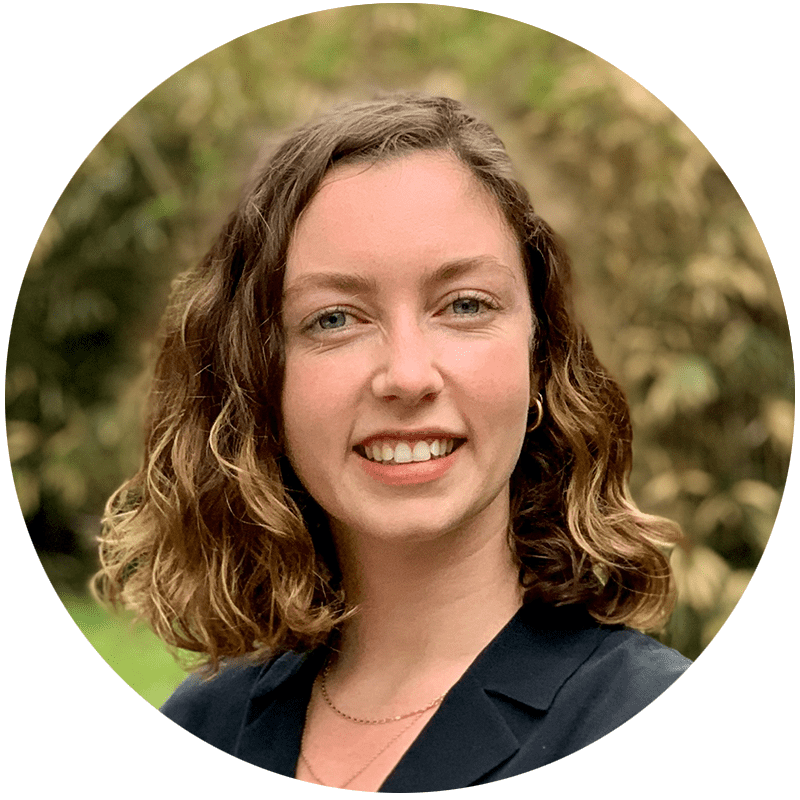
Bailey Clark serves as the Communications Coordinator for World Relief Memphis. With a background in journalism and advertising, she is passionate about storytelling and its power to make a difference.

A pioneer in the documentation space, Emily Kankindi is the communications and documentation unit coordinator at World Relief in Rwanda. She started with World Relief in 2005 and has been growing through different stages while pursuing a career in creative communications with a passion to tell the story of impact. Driven by a mission to serve the most vulnerable, Emily is best known for inspiring others to care and serve the needy by using all possible means of communication to promote and call forth positive ramifications of WR interventions in all aspects of life. Her educational background is marketing and travel operations.
4 Resources From World Relief Staff That Have Shaped Their Journey: MLK Day
At World Relief, we are committed to welcoming refugees and immigrants as they rebuild their lives in the United States. Together, we’ve come alongside over 40,000 people seeking refuge in Chicagoland. Yet there still remains over 80 million people displaced from their homes around the world. This reminds us of Martin Luther King Jr. when he said, “Our lives begin to end the day we become silent about things that matter.” So, on this day that commemorates his work and legacy, a few World Relief Chicagoland staff took time to share a resource (or two) that has impacted them personally. We hope these personal recommendations from staff will be helpful or thought-provoking on our collective journey to be a welcoming community for refugees, asylum seekers, and other immigrants.
1. The Ungrateful Refugee: What Immigrants Never Tell You by Dina Nayeri
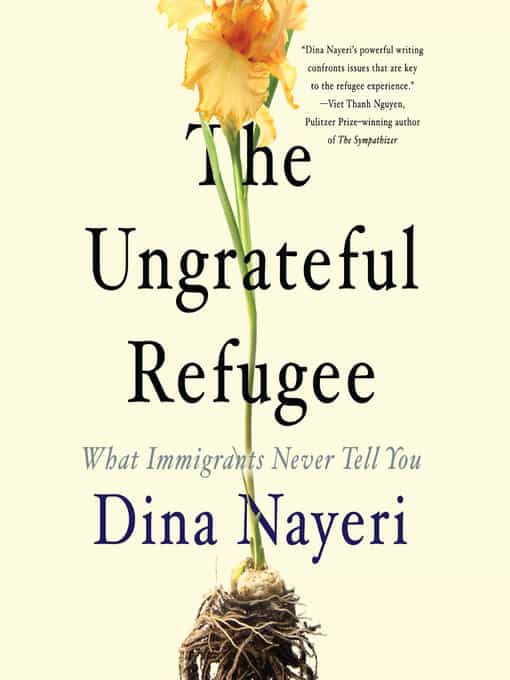
Author Dina Nayeri in her book The Ungrateful Refugee: What Immigrants Never Tell You shares her own story and the stories of other migrants she’s met over a span of decades. She writes with profound insightfulness and passion for supporting others in their journeys. I am grateful for the ways she’s helped my perspective and empathy in my work to grow.
– Rebecca Larsen, World Relief Chicagoland Preferred Communities Program Manager
2. Dreamers by Yuyi Morales
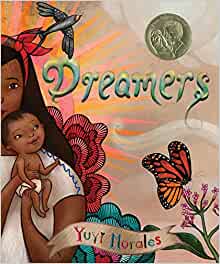
With a new baby at home, my reading materials have shifted a bit this year, but I’ve really enjoyed reading our daughter stories from diverse writers and backgrounds to start to give her a sense of the world around her. Dreamers is a wonderful story of a mother and daughter who come to the U.S. dreaming of a better life. The illustrations are also amazing and include a lot of “mariposas” (butterflies), a symbol associated with support for immigrants.
– Andy DeBoer, World Relief Chicagoland Grants Manager
3. The Intersected Project
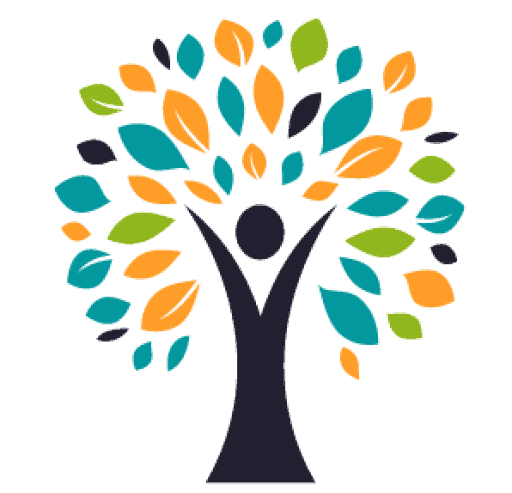
I serve as editor-in-chief at an intersectional publication, part of a larger racial equity project that my best friend and I founded in 2020. Intersected Project’s mission is to empower individuals to take practical actions for racial equity in their communities. We have put out several resources that touch on the intersection of race and immigration.
This has been helpful on my journey because I learn as I research and edit, and stay involved in the collective work for liberation.
– Katelyn Skye Bennett, World Relief Chicagoland Employment Counselor
4. “Goats and Soda” & “The Better Samaritan”


Every time I read NPR “Goats and Soda” blog or Christianity Today‘s “The Better Samaritan” blog, I gain a new perspective on global issues and how people in the United States can engage with hard topics like poverty, migration, mental health care for refugees, charitable giving, economic research, and so much more. The “Goats and Soda” blog from NPR is journalism from reporters across different countries and cultures and really sheds light on topics too often overlooked but which deeply impact the most vulnerable people around the world.
The “Better Samaritan” blog challenges Christians to love our neighbors in practical ways while also “using our hearts and smarts” as we seek to do good and provides interesting perspectives from people working in areas like public health, disaster recovery, refugee resettlement, and more. Both blogs are such a great way to learn something new and gain a broader perspective into what our neighbors experience and how we can engage.
– Carrie Woodward, World Relief Chicagoland Foundations Manager
What’s your next step?
We realize there are countless other resources for you to read or listen to the stories of refugees and immigrants. On the one hand, maybe that’s where you’ll go next. If so, check out 4 Ways to Reach, Watch, and Listen to Powerful Immigrant and Refugee Stories. On the other hand, maybe your next step is to get more involved. If so, here’s how you can volunteer and advocate with World Relief Chicagoland. Regardless of your next step, we hope these resources inspire your journey to love and welcome refugees and immigrants.
Continue Reading:
Expect A Miracle: Reimagining Our Lives in the New Year
Though the new year may be upon us, many of us are still moving through the immense amount of change we’ve experienced over the last two years. Today, Karen Gonzalez encourages us to see change as God’s vehicle for renewing and reimagining our lives.
We invite you to read or listen to Karen’s message below, then check out the entire Made for Change Audio Series, created to help you experience God’s presence in the midst of change. May you find the peace and presence of our good and loving God, the one who can do more than we could ever ask for or imagine.
Listen to the audio version of this blog post and find more audio meditations here.
Another Year of Change
When I was little, my grandmother sent me a card every year for my birthday. She would always write a special message inside, and then in the corner, in small, careful print she would write, “Jesus loves you and so do I. Expect a miracle.”
“Expect a miracle” were the words she lived by. They sustained her and reminded her that the Almighty would act in unexpected ways for her good and for God’s own glory.
Many of us can likely relate to my grandmother… 2020 – and subsequently 2021 — have been difficult years, in ways most of us could not have imagined: We faced a contentious election season, a global pandemic, racial unrest and economic turmoil.
We are grateful to say goodbye to the old, difficult year and welcome the potential this new one holds. We want to expect a miracle — something different but welcome, surprising but joyful. And so we come to this new year with expectation, with the assurance that God makes all things new, even us.
Change reimagines. It’s what God uses to reimagine our present circumstances and give us hope for a future beyond anything we could ever ask.
Naomi’s Story
I’ve been reflecting on the story of Naomi in the book of Ruth. For a woman whose name meant “pleasant,” Naomi led a life of suffering and grief. She experienced famine, forced migration, widowhood, the death of her sons, abject poverty and an uncertain future.
After the death of her children, Naomi returned home to Bethlehem for a new beginning in the company of her widowed daughter-in-law, Ruth.
But to Naomi, the future did not look bright. She knew that having a husband and sons was the only way to ensure her survival, the only means for a woman’s economic sustenance in her society. Without them, she could not imagine a life full of anything but poverty and despair.
The best Naomi could hope for were the provisions in God’s law, designed to care for poor people like her: gleaning the leftovers in the fields and vineyards.
She railed against God, bellowing that her name should have been bitter, not pleasant, because her life had been bitter, “The Lord has afflicted me,” she cried, “and brought misfortune upon me. I went away full but now I am empty.”
In a million years, Naomi could not have guessed that the terrible changes in her life would be God’s vehicle for reimagining her life. Though the pain and the loss would not be erased, they would be robbed of their sting because God would redeem and restore her life.
Naomi, a woman who thought that men — a husband and sons — were God’s only way of providing for her well-being, could never have imagined that a woman — her loyal daughter-in-law — would be the path through which she’d experience God’s faithfulness.
By the end of the story, Ruth had remarried and given birth to a son. Naomi gets to hold her grandson as part of a new family. She listens as her Bethlehem neighbors rejoice with her and proclaim, “your daughter-in-law who loves you is more to you than seven sons.”
Reimagining the Future
Today, we know that this grandson is in the lineage of Jesus. Naomi’s reimagined life connected her to the story of the salvation of all humankind. Change reimagines, not just Naomi’s life but yours and mine.
God worked in Naomi’s life through means that were entirely unexpected — like a phoenix, Naomi rose from the ashes of her scorched life. As the Psalmist says… Naomi got to see the goodness of the Lord in the land of the living.
We don’t know what will happen this new year, but we know who will be with us through it — our good and loving God, the one who can do more than we could ever ask for or imagine. Change is God’s vehicle to renew and reimagine our lives.
As the Apostle Paul writes in Ephesians 3:20 & 21: “Now to him who is able to do immeasurably more than all we ask or imagine according to his power that is at work within us to him be glory in the church and in Christ Jesus throughout all generations forever and ever!”
Friends, expect a miracle.

Karen Gonzalez serves as the Director of Human Services at World Relief and is the author of the new book The God Who Sees: Immigrants, the Bible and the Journey to Belong.
Moving Together to End Gender-Based Violence
16 Days of Activism
As many in the U.S. paused to celebrate Thanksgiving, November 25th also marked the beginning of 16 Days of Activism Against Gender-Based Violence. For 30 years, the international community has come together to amplify voices and speak out against gender-based violence, which affects millions of people worldwide.
While gender-based violence affects men, women, boys and girls worldwide, women and girls like Angela are affected disproportionately.
Angela’s Story
Angela is a 12-year-old girl living in Malawi, a country where sexual and gender-based violence impacts an estimated 15-25% of girls and boys under 15 years old.
One day, as Angela was leaving school, an older man whom she didn’t know approached her saying that he had something to tell her. When she stopped, he made it clear that he wanted her to be his girlfriend.
Thankfully, Angela had been attending empowerment and self-defense classes, called IMPower, through World Relief’s SCOPE HIV project.
IMPower is a curriculum customized for the unique challenges that boys and girls face. Girls learn about boundary setting and diffusion tactics, verbal assertiveness, negotiation and physical self-defense skills, while the boy’s curriculum focuses on treating women and girls respectfully, and the prevention of sexual gender-based violence amidst social pressures related to masculine norms.
Using the skills she learned in IMPower, Angela loudly asserted that she was not interested in a relationship. To her surprise, the tactic worked, getting the attention of those around her and giving her the courage to walk away.
The next day, she saw the man again. This time, he didn’t even acknowledge her, despite her being alone.
“I can now sense danger, respond quickly to danger, by lying, shaming, negotiating even warning for consequences in order for me to get away,” Angela said. “And if the situation seems very dangerous, there is always readily available support from people and friends around.
Gender-based Violence and HIV Transmission
While the 16 Days of Activism Against Gender-Based Violence runs from Nov. 15-Dec. 10, World Aids Day falls right in the middle on December 1.
Gender-based violence is both a cause and a consequence of HIV. Of people living with HIV in Malawi, 20% reported experiencing physical violence, and 41% reported sexual violence over 12 months, including intimate partner violence.
HIV infections in Malawi are declining, but positive gender norms and gender-based violence prevention are critical to sustaining this momentum and reaching every person who needs it with HIV care and treatment.
In partnership with USAID and PEPFAR, World Relief’s SCOPE HIV project is focused on addressing both issues together by implementing prevention approaches, community mobilization, advocacy, holistic support for survivors and training programs like IMPower.
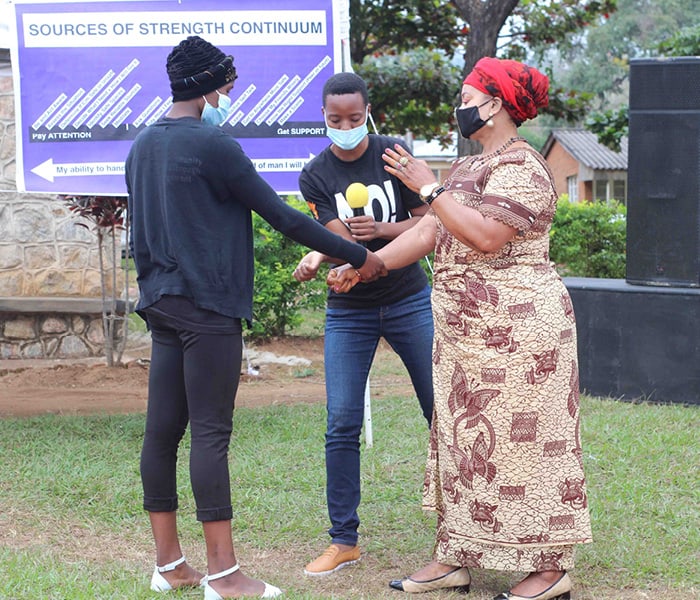
In just seven months of implementing SCOPE activities, World Relief Malawi has helped 582 survivors gain access to services. These community volunteers and faith congregations have also intervened to stop child marriages and keep young girls in school.
You Can Help
Combating gender-based violence, and creating change that lasts isn’t easy, but it’s possible when we move together. That’s why we invite you to move with us by participating in these 16 Days of Activism. You can:
1. Make a personal commitment to “Stop Violence Now.”
All of us can repent of times when we’ve used power over others to cause harm — whether large or small. Ask the Holy Spirit to show you how to give power to or have power with people in our homes, churches and communities.
2. Reach out to survivors of sexual and gender-based violence.
If you know someone who has survived sexual and gender-based violence, reach out and offer a helping hand. Let the spirit of whatsoever you do to the least of my brother, that you do unto me flourish (Matthew 25:40).
3. Pray for victims of sexual and gender-based violence.
Prayer is one of our most powerful tools. Pray for healing for those affected by sexual and gender violence, pray for those like Angela who are vulnerable, and pray for men and women to speak out.
Learn more about SCOPE HIV and how we’re working to help address gender in Malawi’s HIV epidemic. For more details about how you can engage in the 16 Days Campaign visit https://16dayscampaign.org.
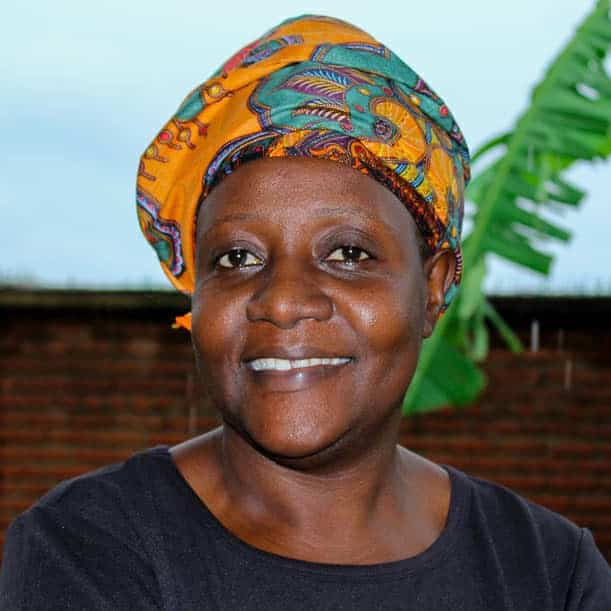
Veronica Kaitano serves as the Gender Equality Social Inclusion Technical Advisor with the World Relief’s Programs Resources Team. Through her work, Veronica supports World Relief’s country offices in ensuring the integration of a gender and social inclusion approach within programming and acts as the global technical lead for supporting implementation and continued growth of World Relief’s couple strengthening model Families for Life, with a specific emphasis on disability inclusion.
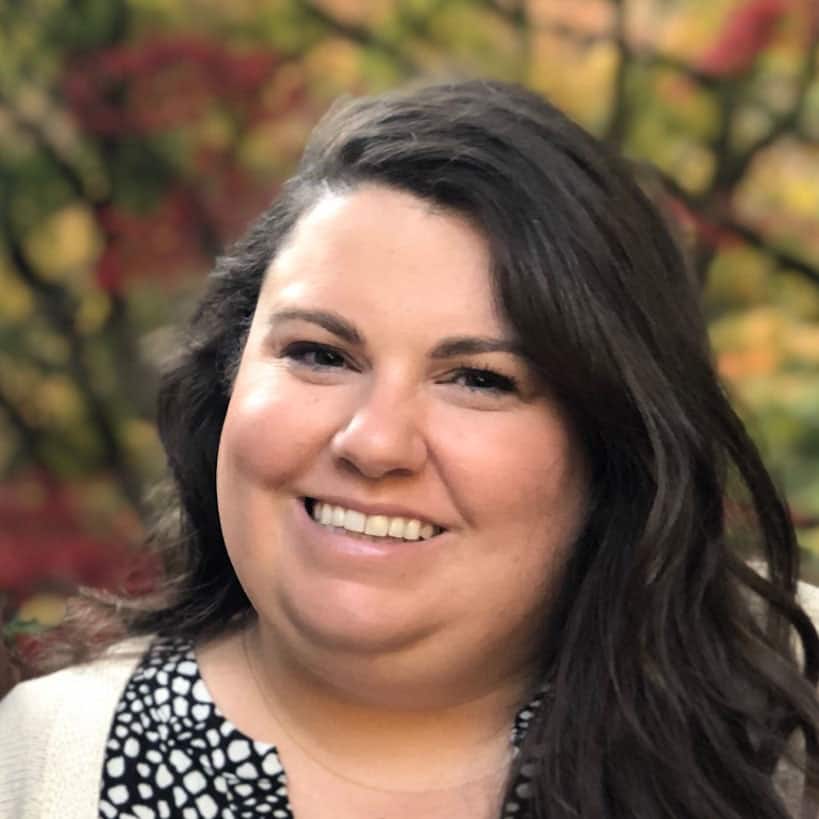
Laura DePauw serves as the Knowledge Management Advisor for World Relief’s Strengthening Community Health Outcomes Through Positive Engagement (SCOPE) project providing knowledge management, communications, and information management across the project’s four countries.
10 Reasons to Give Thanks in 2021
2021 has been a challenging year. Like you, we’ve felt the pain of loss, the ache of division in our churches and communities and the harsh realities of ongoing injustice around the world. This Thanksgiving, we may even feel tempted to ask, What’s there to give thanks for?
And yet at World Relief, we’ve found there’s much to be grateful for in 2021. In the midst of the crises and the chaos, God has opened doors, made paths straight and raised up partners who move with us to serve those experiencing vulnerability. We asked 10 of our staff from around the world to share just some of what they’re grateful for this year. We hope their testimonies of God’s faithfulness shining through in 2021 will inspire you to “give thanks in all circumstances” (1 Thess. 5:18), as they have us.
What are you grateful for in 2021?
Karen Crisler, Community Engagement Manager, Appleton, WI: I’m grateful to be in a field of work that is laboring towards restoration; that despite the fractures in all spheres of life, redemption is at work. I’m also grateful that I’m slowly learning that this work doesn’t rest on my shoulders, but rather my daily need is what tethers me to Jesus. I’m so thankful that I got to join the World Relief staff this year!
Clemence Nkulikiyinka, Integral Mission Technical Advisor, Rwanda: I am thankful that God’s grace has sustained us in 2021. World Relief has been able to keep human resources, despite the challenges brought by the pandemic. I am grateful for the ability to virtually connect with colleagues and opportunities to visit and support in-person as the world reopens. I am grateful that we have access to vaccines, and that they are reducing the mortality rate.
Matilda Matitha, Country Director, Malawi: I am thankful to God because he continues to protect WR Malawi staff and their families from Covid 19 as we serve vulnerable communities. I am also grateful to God for the opportunity to be part of the great mission in WR Malawi where we are reaching close to 1.9 million people.
Abby Ray, Communications & Advocacy Coordinator, High Point, NC: I’m extremely thankful that God provided a job for me at World Relief. Working for an organization that aligns with my personal mission and values, and working with people who care about me as not only an employee but a neighbor and sister of Christ, is so encouraging. I’m incredibly thankful for all of the people in our office who take such good care of our clients and church partners.
Katie Love, Preferred Communities Program Manager, Baltimore, MD: We are grateful that God has provided through government grants and private donations to meet the needs of thousands of Afghans arriving in America. With these funds, we will be able to support housing and mental health needs, provide one-one-one case management and help pre-literate Afghan women build community and gain access to resources through literacy training.
Andualem Mekonnen, Program Quality Specialist, South Sudan: I am very grateful to God Almighty for keeping me and my family protected from the horrendous COVID-19 pandemic. I am also grateful for the opportunity God has opened for me to serve the marginalized and neglected communities in South Sudan through World Relief.
Bailey Clark, Communications Coordinator, Memphis, TN: We are so grateful for our host families and their incredible hospitality toward refugee families. Hearing their sweet, encouraging stories has been a huge blessing.
Ileana Gómez, CYRUS Support, Nicaragua: I’m thankful for the opportunity to get to know our staff in South Sudan and Kenya while living with and learning from them. Their work is amazing! I saw the commitment of each of them to our vision at World Relief — that was a blessing and is still a blessing. I’m grateful that I could have this wonderful experience, and I thank God that he returned me home safe and sound in 2021.
Megan Ashley, VP of Marketing, Chicago, IL: I’m thankful for the commitment to excellence each member of the World Relief team brings to their work. It seems to be in each person’s DNA to bring our best to those we’re working with and for — even when it can mean extra hours, tough conversations or adapting overnight to an unfolding need somewhere in the world. Whether it’s our best writing, design, client care, policy, program, etc., we’ve been blessed with people who care.
Jeff Walser, Senior Director of Development, Tampa, FL: I am so thankful for the presence of God through his people in my life. It’s been a chaotic year of ups and downs, hopes gained and hopes lost. As I’ve struggled to keep buoyant, God’s people — with steady loving hands, patient words of encouragement and faith-filled prayers — have redirected my gaze to the One who calms the winds and waves and leads us forward into the work he has given us to do.
‘We need the community to surround them’: Triad resettlement agencies prepare to help people who fled Afghanistan
Arrivals to the Triad area from Afghanistan will be welcomed by World Relief Triad.
Our Executive Office Director, Rob Cassell, spple on behalf of World Relief Triad’s involvement as an agency accepting Afghan parolees.
Various resettlement agencies across the Triad have been made aware of the possible arrivals. Those from Afghanistan are referred to as “humanitarian parolees.” Humanitarian parole is a status that some receive response to a crisis. It grants immigrants the ability to enter the country when otherwise they would not, such as with the arrival of Haitians and Cubans.
What this status means for these individuals, though, is that that they not receive the same rights and benefits as refugees, as Executive Director of World Relief Triad, Rob Cassell, points out as something to call upon Congress for in taking action.
“As things go right now, there are a lot of gaps to cover,” said Casell. “We all need connections. We all need people to help us. The success of these families and individuals will be based on their ability to make those connections and integrate into the community.”
Read more at News & Record Greensboro.
We Move Together
Compounding Crises
In my 14 years of working at World Relief, I have never felt the weight of compounding crises quite like I have this last year.
The same week I stepped into my new role as President and CEO, a 7.2 magnitude earthquake hit Haiti and Kabul fell to the Taliban, putting thousands of Afghan allies and civilians at risk.
Like many of you, I watched heartbroken and angry at the sight of such injustice as women and men chased after U.S. aircraft carriers, desperate to get to safety. And all of this on top of a global pandemic, on top of a global economic crisis, on top of unrest in places like Tigray and Geneina, a food crisis in DR Congo and a multitude of other crises that never make headline news.
We are living through some of the greatest humanitarian crises of our lifetime. It’s a lot to take in, and certainly too much for any one person to hold alone.
And yet, there is hope.
Called to Be the Church
In Acts chapter 17, the Apostle Paul writes that God himself gives life and breath to everyone, that he has marked out the appointed times in history and the very places where each of us exists. In other words, the church — that’s you, and that’s me — was created for such a time as this!
I will never cease to be amazed at the way God can move through his church and his people.
In my time serving as Country Director of World Relief Rwanda, I saw church members from our local Church Empowerment Zones come together in incredible ways to care for those suffering from AIDS, build peace among families who had harmed one another and lift their communities out of economic poverty.
Similarly, over the last few months, churches across the globe have responded greatly to the crises in Haiti and Afghanistan. Many of you have generously reached out with prayers and donations.
Together, we have welcomed and resettled more than 600 Afghan refugees since August. Our staff in the U.S. are currently working their way through 4,128 volunteer applications that have been submitted since August — that’s more volunteer interest in a six-week period than the total number onboarded for the entirety of the fiscal year 2020.
And with the help of 300 local volunteers, our team in Haiti has distributed kits of food and hygiene items to over 4,400 families affected by the August earthquake.
The wave of generosity has been inspiring. It has reminded us that while creating change that lasts isn’t easy, it’s possible when we move together.
Moving Together
How powerful it is to know that you and I were created for such a time as this? And what responsibility does this place on us, I wonder?
Today, the local church in Haiti is leading the way as we help the communities of Les Cayes rebuild. In the U.S., roughly 50,000 Afghans are living at U.S. military bases awaiting their resettlement assignments. Our U.S. office network of staff, churches and volunteers is preparing to receive as many as 7,000.
We have the opportunity to respond together as God’s church — to not be overcome by evil and injustice, but to overcome evil with good (Romans 12:21). Across the globe, men and women just like you are rising up to meet the needs of the most vulnerable among them, and you can join them.
No one of us can carry the world’s burdens on our own. But when we move together, anything is possible. Will you join us?
Move with us this season by signing up for this four-part Advent series delivered right to your inbox. You’ll receive an invite to a virtual gathering plus updates on how to stay involved and make lasting change at home and around the world.

Myal Greene has a deep desire to see churches worldwide equipped, empowered, and engaged in meeting the needs of vulnerable families in their communities. In 2021, he became President and CEO after serving for fourteen years with the organization. While living in Rwanda for eight years, he developed World Relief’s innovative church-based programming model that is currently used in nine countries. He also spent six years in leadership roles within the international programs division. He has previous experience working with the U.S. Government. He holds B.S. in Finance from Lehigh University and an M.A. from Fuller Theological Seminary in Global Leadership. He and his wife Sharon and have three children.
Leading and Inspiring Change: Celebrating Evelyn Mangham
A Celebration of Life
Every once in a while you meet a person who truly inspires you. Evelyn Mangham, who, along with her late husband Grady Mangham, began World Relief’s refugee resettlement program in the 1970s, was one of those people. She passed away October 5, 2021 at the age of 98, and today we mourn the loss and celebrate her life and ministry.
Born in 1922, Evelyn spent the early years of her life living in what is now known as Syria and Jordan as the daughter of missionaries. After marrying Grady Mangham, she moved to Vietnam, where the couple lived and ministered from 1947 to 1967 as Christian & Missionary Alliance missionaries.
Together, they taught Bible school and supported church planting and discipleship among the Montagnard people. They returned to Nyack, New York in 1967, where they worked from the Alliance’s headquarters. Evelyn, though, said that she felt stuck at that time— missing the people she had befriended in Vietnam and the life to which she had become accustomed.
Soon, the political situation in Vietnam deteriorated. Six Alliance missionaries were killed in 1968 as the Tet Offensive began. In 1975, when Saigon fell and the flow of refugees increased dramatically, Evelyn and Grady began receiving urgent pleas from people whom they had known in Vietnam, who had now been forced to flee as refugees. “We had to do something,” Evelyn told me when I interviewed her in 2016.
Seeing People as People
The couple tirelessly worked to advocate for refugees to be welcomed to the U.S., knocking on the doors of both the U.S. government and the various churches that had supported them as overseas missionaries.
Evelyn would often work from the hallway of the Alliance denominational offices in Nyack, calling up local churches, pleading with them to take in a refugee family. While some pastors were hesitant, many were eager to welcome refugees into their communities.
Evelyn recalls one pastor who initially declined to help, saying his church was busy working on a parking lot project. Evelyn responded, “But these are people!”
More often than not, however, local churches stepped up to the challenge, meeting newly arrived families at the airport, welcoming them into their homes on a temporary basis, and eventually helping them to find permanent housing, jobs, and everything else necessary to restart their lives in a new culture.
In a single year, Alliance churches welcomed more than 10,000 refugees who had fled Vietnam and from conflicts in neighboring Laos and Cambodia.
As refugees from Southeast Asia continued to arrive, Grady and Evelyn ran out of Alliance congregations to call upon. Evelyn was undeterred. She began cold-calling pastors from the directory of the National Association of Evangelicals, expanding her outreach to Baptists, Presbyterians, Pentecostals, Wesleyans, and others. When she encountered resistance—understandable in the political context, given that most Americans disapproved of the effort to resettle Vietnamese refugees at the time — Evelyn would remind them of the repeated injunctions in Scripture to care for vulnerable “strangers.
Partnering With World Relief
In 1979, this effort that had initially been coordinated by the Christian & Missionary Alliance’s CAMA Services and then through Lutheran World Relief was brought under the auspices of World Relief — the humanitarian arm of the National Association of Evangelicals.
Up until then, World Relief had been focused on empowering churches to care for vulnerable and displaced people overseas., But under the leadership of Grady and Evelyn Mangham, began its U.S. refugee resettlement program.
Grady Mangham continued to lead World Relief’s refugee resettlement program until 1987, resettling an average of 6,300 refugees annually from countries all around the world. Since then, several of Grady and Evelyn’s children and grandchildren have served World Relief in various capacities.
The refugee resettlement program that Evelyn helped to found has now resettled roughly 300,000 refugees to communities throughout the United States.
In the coming months, World Relief anticipates receiving between 7,000 and 10,000 individuals who have recently fled Afghanistan in an evacuation with many historical parallels to the refugee crisis in Vietnam that sparked Evelyn and Grady Mangham’s ministry. The local church remains central to our mission, just as it was when Evelyn and Grady founded the program.
The World Relief family throughout the globe grieves Evelyn’s death — but not without hope, confident in the resurrection through Christ that was Evelyn’s greatest hope. And we celebrate the incredible legacy of Evelyn and Grady’s life and ministry.
Even into her last years of life, living in Florida, Evelyn always would greet refugees from the Middle East with a smile, singing with them the Arabic songs she remembered from her childhood.
As refugee resettlement has become increasingly controversial in recent years, including within evangelical churches, Evelyn was asked how she would advise Christians who felt reluctant to engage in refugee ministry:
Well, respond to what Jesus said, that’s all: “I was hungry, and you gave me something to eat. I was thirsty and you gave me something to drink. I was a stranger” — refugee — “and you took me in… Inasmuch as you did unto of the least of these my brethren, you did unto me.” It’s simple obedience.
*elements of this reflection were drawn from a 2016 article written by Matthew Soerens for Christianity Today.
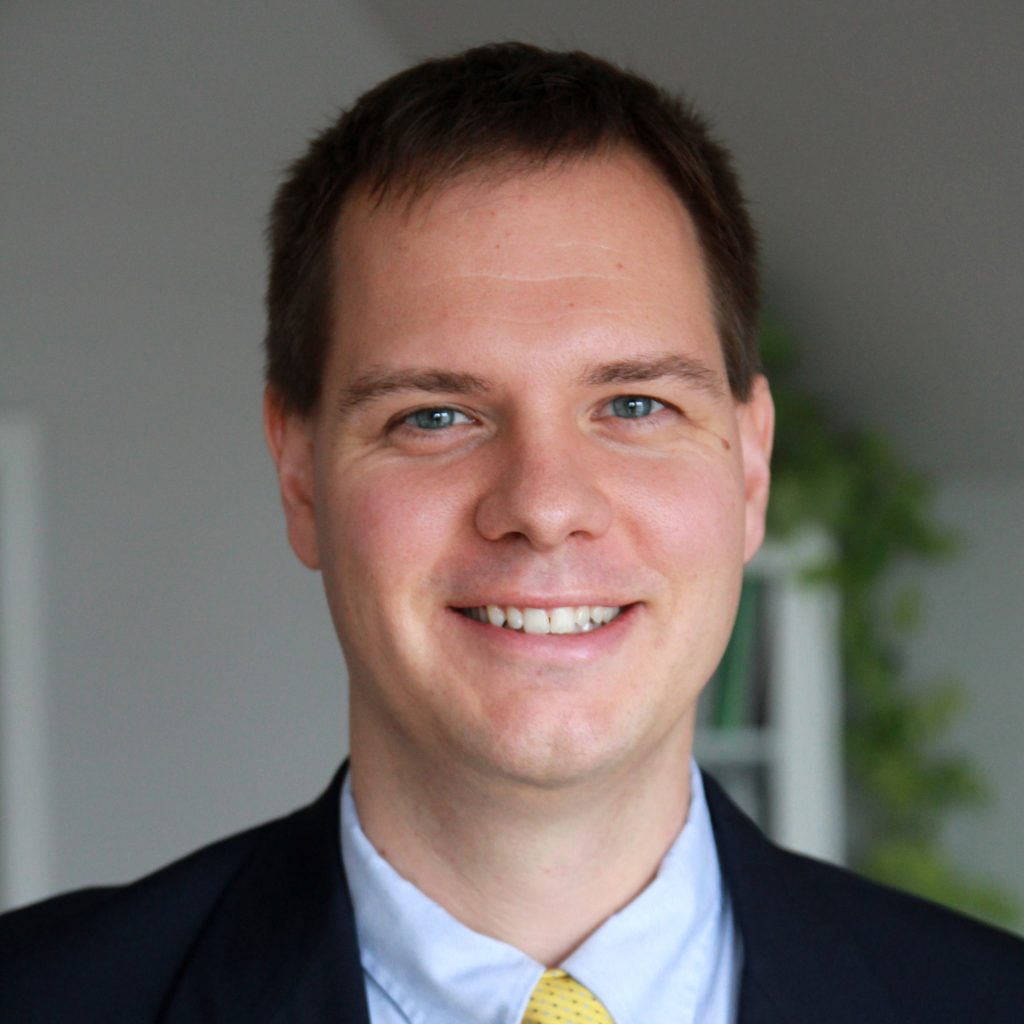
Matthew Soerens is the US Director of Church Mobilization for World Relief, where he helps evangelical churches to understand the realities of refugees and immigration and to respond in ways guided by biblical values. He also serves as the National Coordinator for the Evangelical Immigration Table, a coalition that advocates for immigration reforms consistent with biblical values.
Moving Beyond The Compassion Moment
It’s been just over a month since the U.S. evacuation of Afghanistan began and a 7.2 magnitude earthquake shook Haiti. While the news headlines may be settling down, the need continues. Our U.S. offices are preparing to welcome thousands of Afghans into their communities, and our church partners in Haiti are hard at work helping their communities rebuild.
At World Relief, we’re committed to moving beyond the compassion moment — bringing hope and lasting change to the women, men and children who need it most.
This blog was originally published on Aug. 14, 2018 and was updated in September of 2021.
The “Compassion Moment”
In 1984, BBC journalist Michael Buerk produced what was arguably the most groundbreaking news reports of the late 20th century, documenting massive famine in Ethiopia. Record low rainfalls, compounded by the effects of a brutal civil war, contributed to an estimated one million deaths and made millions more destitute. In his report, Buerk described the scenes of dying families huddled in feeding camps as “a biblical famine in the 20th century.”
The report went viral, transmitted by 425 television stations worldwide. Musicians, artists and celebrities of all kinds came together to organize fundraising events, the culmination of which was the Live Aid concert, watched by over 400 million people worldwide. The surge of compassion was huge.
Fast forward to 2008, when genocide in the Darfur region of Sudan splashed across headlines and the Save Darfur movement was born. The campaign grew like wildfire, garnering unparalleled support—from high school students to politicians to Hollywood’s biggest names.
Millions of dollars were pumped into advertising, celebrity spokespeople ensured constant media coverage and high school and college clubs and letter-writing campaigns ramped up national support in the blink of an eye. Again, the surge of compassion seemed unstoppable.
Then, in 2015, a picture of a little Syrian boy washed up on the shores of Turkey broke over the news. His name was Alan Kurdi, and he had drowned as his parents sought to escape the violence and horrors of the civil war in Syria. The image of this unimaginable horror once again fueled a compassion moment that captivated the world and led to an outpouring of generosity. The Swedish Red Cross saw donations skyrocket from $8,000 to $430,000 in one day — a pattern experienced by many other international organizations the day after Alan’s photo was released.
Each of these tragic stains on our global history have been complex and different. But they have one painful commonality. The compassion moments failed. The outpouring of support did not last. Donations stayed elevated for a few weeks — before returning to normal levels. And these crises were largely forgotten. Conflict persisted and the images of suffering became commonplace. We returned to our normal.
We should not be surprised. Today, the litany of crises around the world seems to be endless. Famine continues to stalk much of Africa periodically. The number of conflict zones seems to multiply. Mass migration driven by conflict is increasing sharply with the number of displaced people in the world today at an all-time high.
Psychic Numbing
Today, the Democratic Republic of Congo currently faces one of the worst food security crises in the world. A volcanic eruption occurred in May just outside of Goma, displacing more than 20,000 people and destroying much of the arable farmland, which the community relied on for food.
In Ethiopia, civil unrest has displaced an estimated 1.7 million people from their homes since 2020. Many are internally displaced, while others have crossed borders into Eritrea and Sudan where they live in refugee camps. And yet, these crises have hardly impinged on the consciousness of the average American. We have become numb.
Why? Perhaps it is fatigue. Perhaps it’s a belief that it’s no longer possible to make a difference. A belief that the problem is just too big. Indeed, when the World Food Program reported that it had run out of funding for its emergency response in Syria just 12 months after the outpouring of charitable giving that was spurred by Alan Kurdi’s death, many undoubtedly took this as proof that their compassion wasn’t, and never would be, enough.
But what if there was a different way to respond to these crises? What if funding didn’t run out with the hand-outs, but became a catalyst for crisis prevention—a hand-up? Would the world believe once again in the power of their empathy? Could we transform humanitarian responses to have impact that lasted far beyond the end date of a single crisis?
Sustainable Solutions
Humanitarian crises are rarely simple or short-lived. In fact, recent OHCA reports reveal that more than 90% of humanitarian crises last longer than three years, with the average length being seven years. It, therefore, makes sense that responses that focus only upon the immediate “compassion moment” to raise funding are insufficient. The root causes of most humanitarian crises, whether catalyzed by nature or by conflict, are complex and multi-dimensional. They require far more than just emergency aid. Only a response that goes beyond relief to include restoration and rebuilding will truly heal and transform suffering populations.
That’s why at World Relief we go beyond immediate assistance to focus on empowering local communities with sustainable solutions to these complex crises.
In the Democratic Republic of Congo, South Sudan, and other nations plagued by conflict, we design and implement programming in conflict prevention through village peace committees, interfaith peace gatherings and youth against violence initiatives. These programs ensure that peace is maintained, create stability and social harmony and provide a mechanism for communities to resolve local conflicts before they turn to war.
In parts of Africa, where drought and conflict often contribute to re-occurring food crises, we teach communities to rethink common cultural practices to ensure children begin life with proper nutrition and introduce food diversity through new agricultural techniques.
And in places like Haiti, we developed strong networks of local churches that have led to sustainable development work beyond initial disaster response. In Les Cayes, we established a church network after Hurricane Matthew struck Haiti in 2016. These church networks are now responding to the 7.2 magnitude earthquake that hit in August, partnering with us to do distributions and are helping us to identify those most in need.
And in the community of Mapou, Haiti our disaster risk reduction work has helped communities develop low-tech early warning systems that dramatically reduce their potential vulnerability.
In each of these cases, we mobilize the authority, knowledge and outreach capacity of local churches and other partner organizations within the affected communities, magnifying and extending the impact of our work so that change can be sustained long after we depart.
Of course, we cannot claim to have the solutions or the resources to end these humanitarian crises. But we can seek to operate beyond the compassion moment with long-term, sustainable and transformational solutions to complex crises. These solutions ensure that even in the face of crises that seem ‘too big’, ‘too hard’ or ‘too complicated, we can still make a difference—breaking the cycle of despair and empowering the most vulnerable with courage, resilience and hope.
We can still say ‘yes’.

Tim Breene served on the World Relief Board from 2010 to 2015 before assuming the role of CEO from 2016-2020. Tim’s business career has spanned nearly 40 years with organizations like McKinsey, and Accenture where he was the Corporate Development Officer and Founder and Chief Executive of Accenture Interactive. Tim is the co-author of Jumping the S-Curve, published by Harvard Publishing. Tim and his wife Michele, a longtime supporter of World Relief, have a wealth of experience working with Christian leaders in the United States and around the world.











